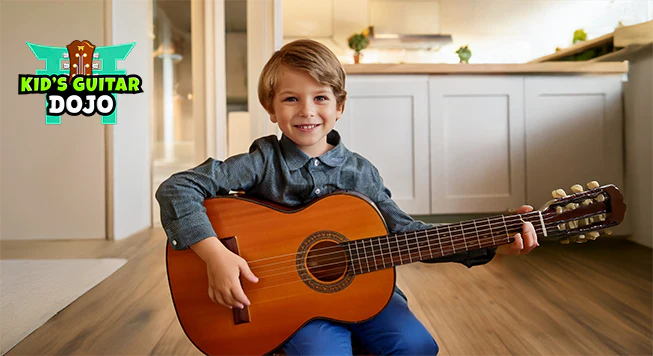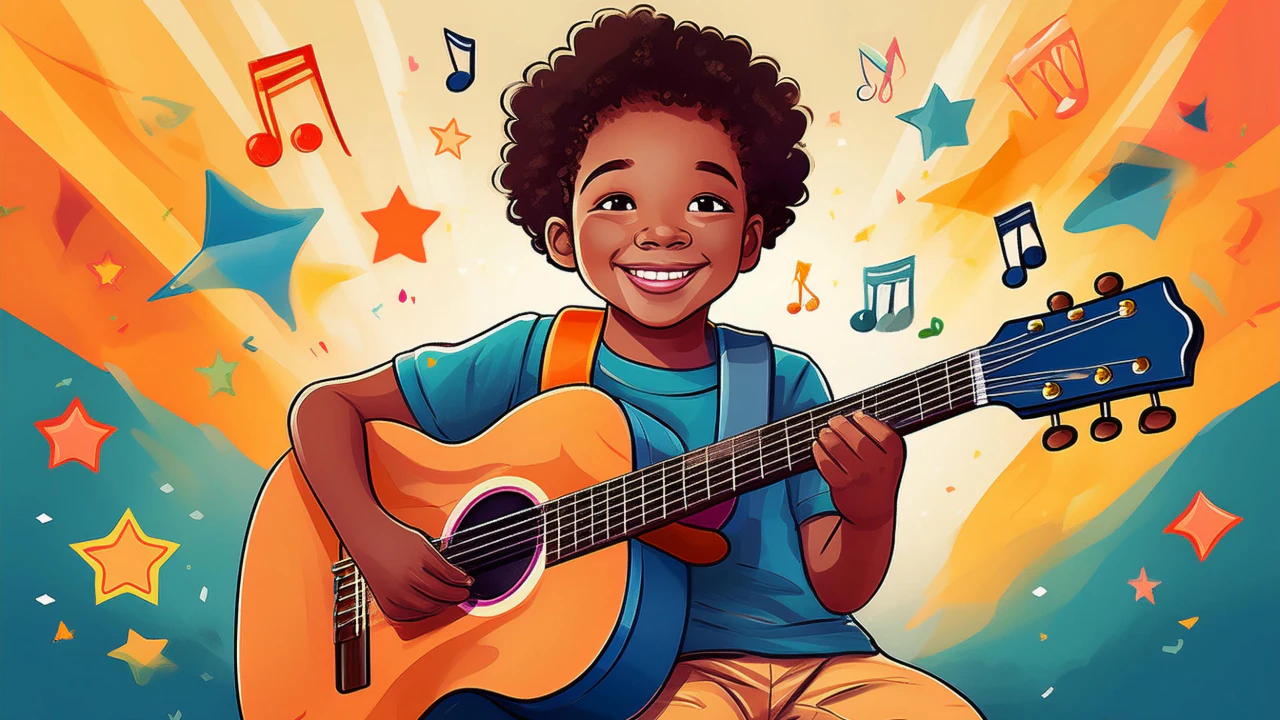What Are The Benefits of Music in Early Childhood Education
Music ignites all areas of child development including intellectual, social-emotional, motor, language, and overall literacy. This particular article was inspired by a discussion with a group of mothers who are actively pursuing music education for their children. We discussed how music can improve our babies’ social-emotional skills and cognitive abilities at a very young age. In addition, we also discussed how music can dramatically increase your babies’ self-esteem and confidence at this young age.

Music For Babies
In this first article, I want to focus on the benefit of music for babies. Babies love music and the pure joy that music brings to their little lives is undeniable. If you’ve ever been to a baby shower, you’ve probably noticed that many of the people there are singing, dancing or simply doing some sort of dance to the music. While some people think that these are silly babies being silly, it is clear that music has an immediate effect on babies.
Music can help babies feel secure.
When you listen to music, your brain releases chemicals that make you feel relaxed. Music can calm you down and help you fall asleep. It can also distract you from feelings that are worrying you or even causing you to be irritable. So, it can help you feel better when you’re worried or upset.
Music can calm your child.
Studies have shown that music helps your baby to sleep better through the night. Not only does the sound of the music to give you a good relaxing experience, but it also stimulates the imagination and communication abilities of your child. If you’re worried about a restless baby, playing calming music can set the mood in the room. The sound of music helps a baby feel more secure and less irritable.
Music also teaches your baby to express themselves
It may seem hard to believe that music teaches creativity, but there are many studies that have shown this. In fact, some early childhood education programs use music as a teaching tool. The musical rhythms of a song helps your child to figure out what is happening in a picture or in their environment.
A baby’s world starts to expand when they’re very young. Babies hear and make sounds. They connect what they hear with their lives. Music can stimulate this connection between sound and images.
Music and Mathematics
Music also teaches your child to count. Most kids are able to learn to count by looking at the numbers on the traditional ABC chart. However, music can teach them the addition and subtraction of numbers. Addition is done by hearing the same melody twice and subtraction by hearing it played again. This helps your child learn how large or small the items in a number are.
What are the benefits of music in child development?
- It helps to improve their brainpower
- It helps them develop social skills
- It helps them build their confidence
- It inspires creativity
- It teaches them patience.
- It is a great form of expression.
- It teaches them discipline
What are the benefits of music education?
5 Benefits of Music Education for Students
- Self-esteem.
Life for kids can be challenging whether it be the playground or the classroom, kids can lose self confidence or have no self confidence to begin with. Bullying is common place now which can be heartbreaking for both child and parent. Music can be the gateway to building self confidence , many famous guitarists have said that learning a musical instrument helped them navigate through difficult times in their lives.
- Listening skills
Music involves listening to yourself and to the rest of the ensemble. At kids guitar dojo we place great emphasis on backing tracks whicch helps improve timing – when put into an ensemble situation having solid timing helps the student immensly.
- Math Skills
Performing music reinforces parts of the brain used when doing math. Studies even show that children who play instruments are able to complete complex mathematical problems better than peers who do not play instruments.
- Relieving Stress.
Research has shown that playing a musical instrument can help reduce stress and anxiety. Music is also a powerful tool for children with anxiety as it can help regulate emotions and provide a much-needed break from overstimulation
- Helping special needs children.
It has been scientifically proven that learning to play an instrument helps children with ADHD or learning disabilities. It can increase their attention span and unlock their ability to learn. These learning challenges can often taken their toll on a child, affecting them emotionally, physically and cause behaviour issues in the classroom or at home. Luckily music can help solve a lot of these issues.
Music strengthens the weak areas of the brain of a child with learning disabilities as it strengthens the auditory, visual/spatial, and motor cortices of the brain. These are the areas related to language, reading, focusing, attention, and concentration. Research has proven that when children with learning disabilities learn to play an instrument the attention, concentration, impulse control, self-esteem, motivation and memory improve. Children who have difficulty in focusing when there is background noise are particularly helped by music classes.
- It Teaches Patience
We live in a world when our kids are growing up with smartphones and tablets where instant gratification is easily obtained. Technology is providing the ultimate dopamine injection as rewards are easily obtained. Learning a musical instrument however takes patience and practice. With The Kids Guitar Dojo method we decided to keep lessons short and concise and use gamification as a way to enhance practicing and give the student a sense of achievement by using rewards to further their knowledge.
What's The Best Instrument For A Child To Learn
It’s pretty obvious I would say the guitar and of course that’s a very bias opinion, however I do have some logic and practical reasons to back that up. But before I do let’s look at some common instruments children begin to play. I am going to break them up into 3 categories so you have a clear understanding. They are chordal, single note and percussive.
- Percussive
These are instruments you hit like the drums , bongos, congas, shakers and tamborines just to name a few.
- Chordal
Chordal instruments create chords – put simply you can play more then 1 note at a time to create chords. Technically a chord can be 3 notes played at the same time . The most common are the piano and the guitar and are taught and played by millions around the world.
- Single Note Instruments
Instruments like the saxophone, trumpet, trombone and human voice can only play one note at a time and, therefore, can’t play chords; these are referred to as single-note instruments.
Why The Guitar Is A Great Instrument For A Child
Portability
The guitars we recommend come in three sizes: 1/4 , 1/2 and 3/4 size guitars. Children as young as 4yrs of age can start on a 1/4 size guitar, they come with a soft case and can be carried around quite easily unlike a piano which is heavy and generally speaking stays put.
See our article on how to choose the right sized guitar for a child.
It’s a Chordal Instrument
You can strum a guitar as well as play single note melodies. You can also accompany yourself if you want to sing along unlike a saxophone or a violin which are single note instruments..
Beginners guitars are inexpensive
Kids guitars are relatively inexpensive when compared to a drum kit or an upright piano. A good quality nylon string guitar with a built in electronic tuner can set you back about $120 – see our article on how to purchase 1/2 , 1/4 and 3/4 size guitars anywhere in the world.
Not sure yet? Sign up for free access to preview one of our engaging video lessons and see why our guitar course is perfect for your child!



